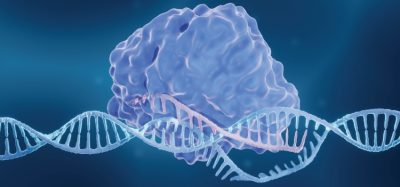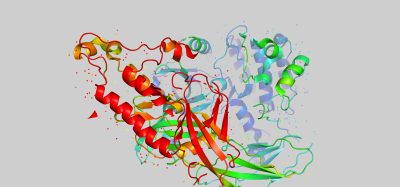Scientists find that dectin-1 receptor protects against allergies
Posted: 2 March 2018 | Drug Target Review | No comments yet
Contrary to previous notions that the receptor dectin-1 causes allergic reactions, new research from the John Hopkins Bloomberg School of Public Health has found that it actually prevents this response, indicating new targets for allergy and asthma drugs.

A special receptor called dectin-1 appears on cells that line the sinuses, throat and lungs and has evolved to protect mammals from developing a range of allergies and asthma, according to a study from researchers in the US.
The scientists found that the receptor recognises a protein found in a variety of common allergy triggers – including house dust mites, cockroaches, shellfish and other invertebrates – and responds by suppressing the body’s immune reactions. The scientists also found evidence that this protective mechanism is dramatically impaired in people who have asthma or chronic sinusitis due to dust-mite sensitivity.
“Everyone is exposed to these substances, yet most don’t have allergic responses to them, and this mechanism we’ve discovered appears to explain why,” says study senior author Marsha Wills-Karp, PhD, Anna M. Baetjer Professor in Environmental Health at the Bloomberg School.
The finding opens up new avenues for potential treatment for – or even prevention of – allergies and asthma, which affects tens of millions in the US alone. It also highlights the possibility of additional, undiscovered receptors that suppress allergic responses to pollens and other airborne and dietary allergens.
Disproving dectin-1 hypothesis
Dectin-1 had previously been studied as a receptor that recognises structures on fungi and other microbes and triggers immune responses to them. There have even been suggestions that it also helps trigger allergic responses to dust mites. To investigate, Wills-Karp and colleagues, including postdoctoral researcher Naina Gour, PhD and assistant scientist Stephane Lajoie, PhD, studied mice that were genetically engineered to lack dectin-1.
The researchers were surprised to find that the airways of these dectin-1-deficient mice were more prone to inflammation after exposure to dust mites than otherwise identical mice whose airway cells expressed it normally. Blocking the receptor with antibodies had the same allergy-promoting effect. Thus, dectin-1 protects against dust-mite allergies rather than promotes them.
The scientists determined that dectin-1, in addition to its fungus- and other pathogen-detecting duties, directly recognises a protein called tropomyosin that is found in house dust mites and other invertebrates. Tropomyosin has previously been implicated as a possible trigger for asthma and shrimp allergies.
The experiments indicated that when dectin-1 identifies tropomyosin in house dust mites, shrimp or other common allergy-triggering species it suppresses airway cells’ production of an immune molecule, IL-33, which would otherwise promote an allergic response by immune cells.
Relating the mouse studies to humans, the researchers studied nasal and bronchial cells from people who suffer from asthma or chronic rhinosinusitis (nasal congestion/sniffles) due to dust-mite sensitivity, and found that on average these cells had a markedly lower expression of the dectin-1 gene. The team also examined data from a prior genetic study of children with asthma and found that a variant of the dectin-1 gene – which reduces production of the receptor – is strongly linked to increased asthma risk.
Commenting on the relevance of their research to human allergy causes, Wills-Karp said: “Our findings suggest that people who have sufficient dectin-1 in the cells that line their airways won’t experience an allergic response when exposed to airborne dust mites or related allergens, but people with a defect in dectin-1 expression will lack this protection”.
The findings point to the possibility of boosting dectin-1 levels, or otherwise restoring its protective effect, as a new therapeutic strategy against asthma and allergies that are related to dust mites, shrimp or other invertebrate triggers.
The study showed that dectin-1 does not, however, recognise pollens – another major cause of allergies – yet Wills-Karp expects that other receptors on airway cells can identify these allergens and she hopes to find them in the course of future research.
This study was published online in Science Immunology.
Related topics
Antibodies, Disease Research, Drug Targets, Genetic Analysis
Related organisations
John Hopkins Bloomberg School of Public Health
Related people
Marsha Wills-Karp PhD, Naina Gour PhD, Stephane Lajoie PhD







